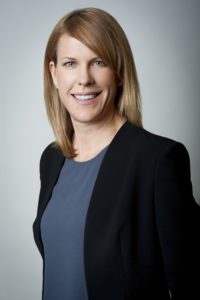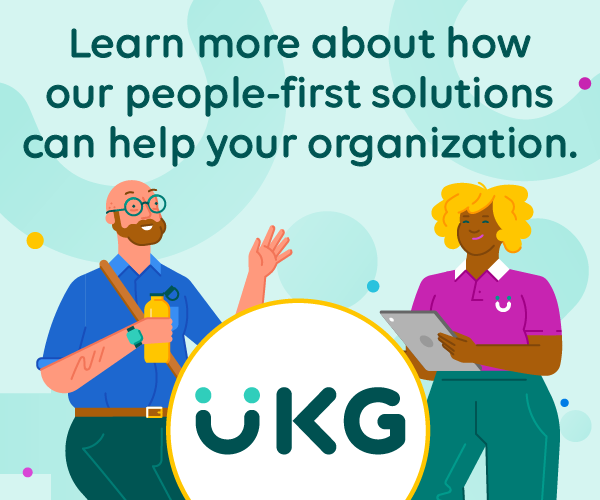HR LeadersTalk: Tracey Arnish, CPHR
By Drew Railton, CPHR
 Tracey Arnish, CPHR is the chief people officer with Coast Capital Savings Credit Union. Coast is the largest credit union by members in Canada has 1,600 employees serving the financial well-being of 532,000 members through 52 branches in BC. A purpose driven organization, they have also recently embarked upon a path of national expansion taking their desire to empower their members in achieving financial wellbeing and supporting communities from coast to coast.
Tracey Arnish, CPHR is the chief people officer with Coast Capital Savings Credit Union. Coast is the largest credit union by members in Canada has 1,600 employees serving the financial well-being of 532,000 members through 52 branches in BC. A purpose driven organization, they have also recently embarked upon a path of national expansion taking their desire to empower their members in achieving financial wellbeing and supporting communities from coast to coast.
Why did you choose HR or how did it choose you?
I fell into HR following the stereotypical thought, “I am good with people.” As a good relationship builder, I was interested in HR programs at university and it seemed like natural path to follow. I found the reality and key to success to be less about the fact that I am good with people, and more that I understand business and can see the big picture across the organization—then marry that with “What does this mean we need in/from people?”
What was the breakout project or thing you did to really accelerate your career?
The pattern that emerges as I look back was really always thinking about how can I be taking on something new to broaden my skill set and increase my network so that when the right opportunity came up I would be considered. Much of my early career was spent with Business Objects(BO)/SAP and this mind set allowed me to extend my brand.
When SAP acquired BO, I was asked to be the project manager for HR integration. It was scary as it was a huge project, but it enabled me to gain a very different perspective as to how HR would operate in the combined organization. It also provided the opportunity for senior relationships in SAP which was invaluable, and allowed me to show what I could really do and be considered for leaderships roles as we moved forward.
What advice do you wish someone had given you earlier in your career?
To get out of HR! I wish I had been pushed out into the business and had chance to run a profit and loss or gain sales skills to help expand and validate my right to play in the eye of other leaders in the organization. By time I was really pushing to get some of that experience I was already at VP level and my boss at time, who was also my mentor, told me I was three to five years too late as needed to do it when more junior.
What do you think is the greatest emerging opportunity/challenge for HR professionals?
Many HR professionals are still struggling with the right to play and whether it is a perceived issue or a real issue. It is there and as HR leaders we need to figure out how to be able to strategically influence versus the transactional side of the portfolio.
Also, continuing to build capability with data and analytics to help build business cases and support the business is key. Another challenge is understanding emerging trends and what impact they will have for business—and how industries are transforming and implications for people as result. We need to bring this level of discussion and thinking to the table to enable true organizational transformation.
How does the HR career path differ today from a decade ago?
I believe it is becoming broader and requires more from us as HR leaders. Businesses are looking for HR partners who can bring an integrated and holistic view to the table, and not just speak from one area. Depth is important, but breadth will differentiate. The evolution of technologies are also helping to move away HR from the transactional—to be repurposed for higher value work and allow partnering and playing at a higher level and in different ways than have before.
HR today also require leaders who are courageous. Those that are will to step into the fierce conversations often necessary to truly surface the key human capital challenges an organization is facing or those things really holding a leader back.
If you weren’t in HR what career would you be pursuing?
Still in an executive leadership capacity but perhaps more on the strategy side of the house. Probably internationally.
Do you have a mantra that helps you get through tough times?
I have a few: “It can always be worse” “you can only control how you choose to show up” “we have a choice, half the battle is perspective and attitude” “need to find the opportunity in change”
What was your first job?
Wendy’s working in the drive thru.
What was the first job you didn’t get?
Out of university in Kamloops, it was with the economic development organization as a business analyst. Everything happens for a reason and as result of not getting it, I went and did my MBA. When I look back, had I been successful with that role I probably would never have done my MBA and might well be in Kamloops still. Life would look very different.
With social media and technology advancements what is your prediction for the future HR?
We really are about helping organizations succeed and win through their people. How do we evolve and keep pace with the amount of change that employees and customers will expect? I do not think that will change but, with technology and demographics shifting, we need to be cultural architects, and helping organization look two years out. Ten years out is too far. We are and will be transformers of business.
If you had a super power what would it be?
To read minds. I feel like I spend half of my time trying to read minds so it would be helpful.
Drew Railton, CPHR is managing partner, Western Canada for Caldwell Partners.
(PeopleTalk Spring 2017)







